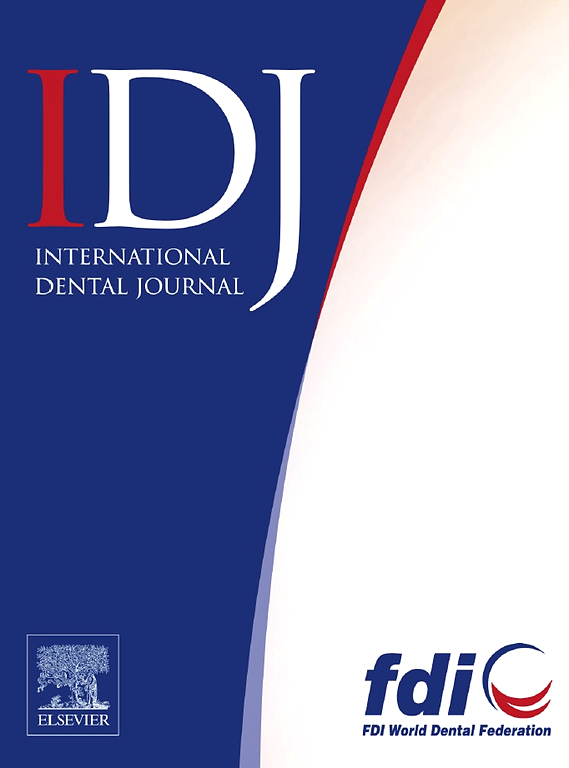窦道解剖对窦道增量术后早期种植失败的影响:回顾性队列研究
IF 3.2
3区 医学
Q1 DENTISTRY, ORAL SURGERY & MEDICINE
引用次数: 0
摘要
目的:本研究旨在探讨上颌窦的解剖结构与上颌窦增量术后早期种植失败(EIF)之间的相关性:在一家医疗中心进行的回顾性队列研究。研究对象为接受上颌窦底增量术并通过侧方途径植入种植体的患者。对术前成像进行了解剖变量评估,包括是否存在隔膜、牙槽前动脉、施奈德膜厚度、上颌窦侧壁厚度、残留牙槽骨高度和上颌窦形状。单变量和多变量分析评估了解剖因素与 EIF 之间的关联。A P 值 结果:共纳入了 143 人的 159 例上颌窦底隆起手术。骨间隔的增加和侧壁的增厚与 EIF 发生几率的降低显著相关。吸烟者发生 EIF 的几率明显更高:结论:上颌窦的解剖特征,特别是骨隔的增加和侧壁的增厚,与上颌窦隆鼻术后较低的 EIF 发生率有很大关系:这些发现强调,除了传统的关注牙槽骨残余高度外,还需要进行全面的术前放射学评估,以提高上颌窦增量手术的可预测性和成功率。本文章由计算机程序翻译,如有差异,请以英文原文为准。
The Impact of Sinus Anatomy on Early Implant Failure Following Sinus Augmentation: A Retrospective Cohort Study
Aims
This study aimed to investigate the correlation between anatomical structures of the maxillary sinus and early implant failure (EIF) following sinus augmentation.
Materials and Methods
A retrospective cohort study conducted at a single medical centre. Individuals who underwent maxillary sinus floor augmentation for dental implant placement via the lateral approach. Preoperative imaging was evaluated for anatomical variables, including the presence of septa, alveolar antral artery, Schneiderian membrane thickness, maxillary sinus lateral wall thickness, residual alveolar bone height, and maxillary sinus shape. Univariate and multivariable analyses assessed the associations between anatomical factors and EIF. A P value <.05 was considered significant.
Results
A total of 159 maxillary sinus floor augmentations in 143 individuals were included. The increased presence of bony septa and thicker lateral walls were significantly associated with lower odds of EIF. Smokers had significantly higher chances of EIF.
Conclusions
Anatomical features of the maxillary sinus, specifically the increased prevalence of bony septa and thicker lateral walls, are significantly associated with lower EIF rates following maxillary sinus augmentation.
Clinical relevance
These findings emphasize the need for comprehensive preoperative radiographic assessment beyond the traditional focus on residual alveolar bone height to enhance the predictability and success of maxillary sinus augmentation procedures.
求助全文
通过发布文献求助,成功后即可免费获取论文全文。
去求助
来源期刊

International dental journal
医学-牙科与口腔外科
CiteScore
4.80
自引率
6.10%
发文量
159
审稿时长
63 days
期刊介绍:
The International Dental Journal features peer-reviewed, scientific articles relevant to international oral health issues, as well as practical, informative articles aimed at clinicians.
 求助内容:
求助内容: 应助结果提醒方式:
应助结果提醒方式:


